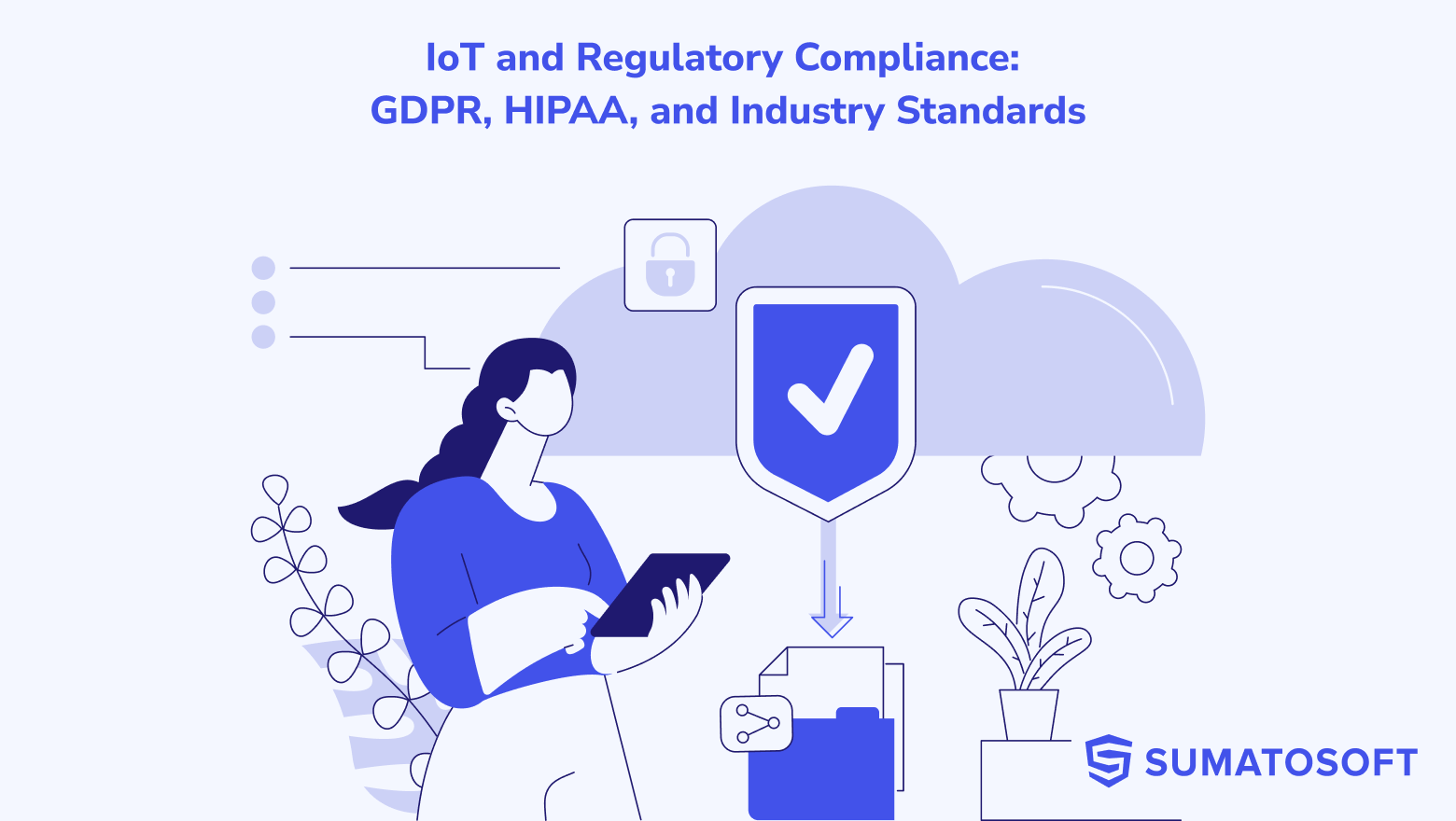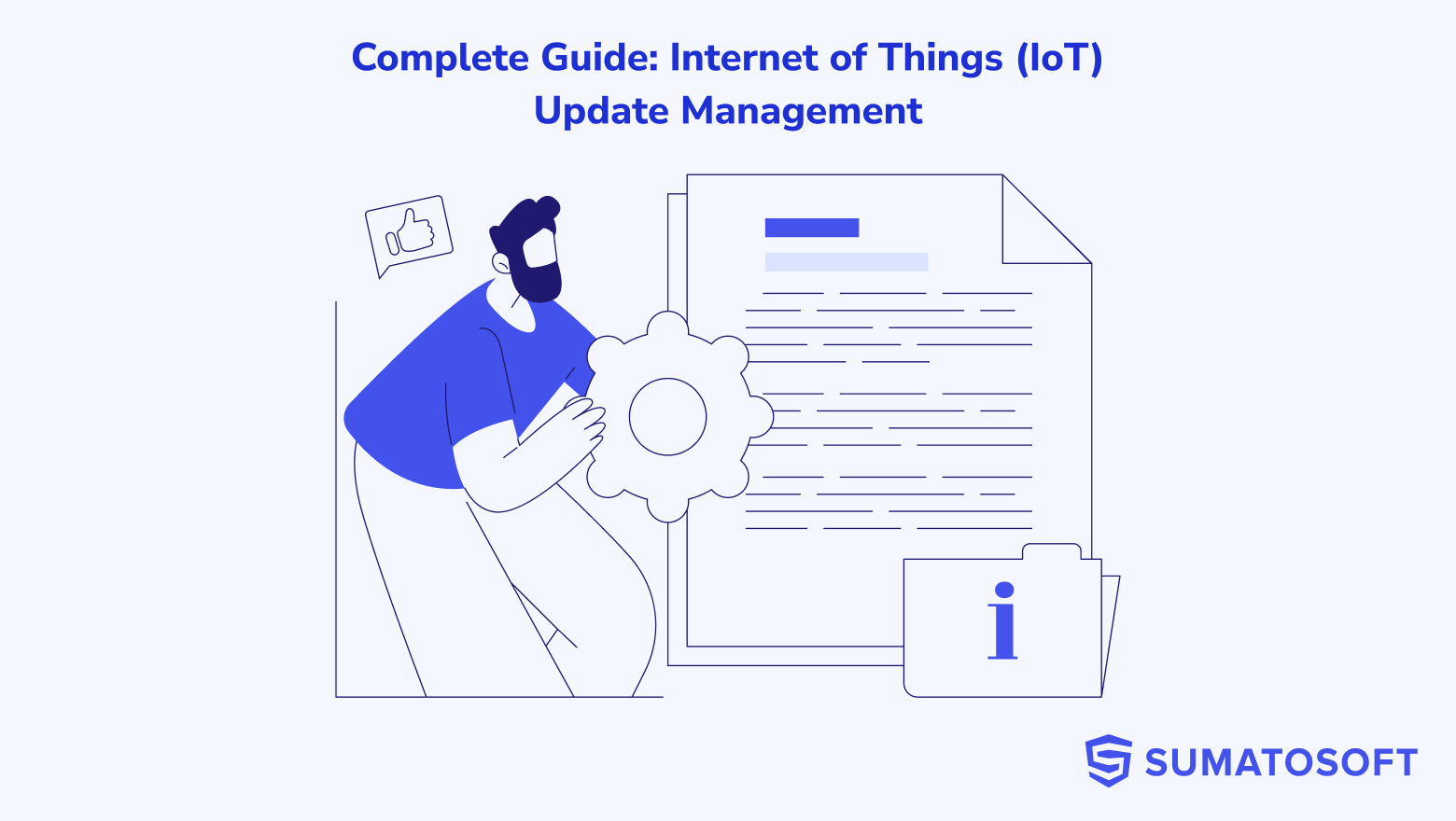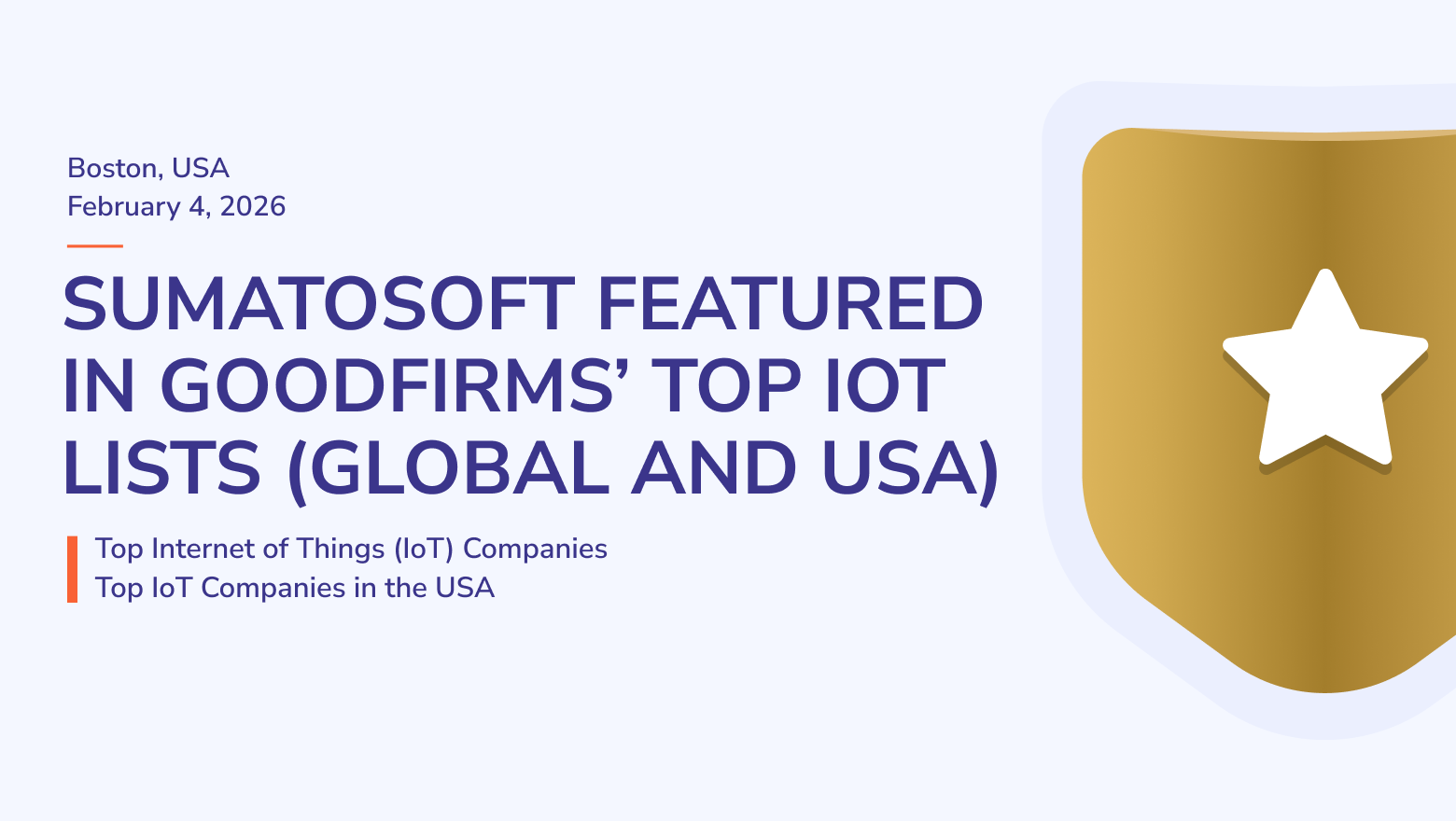Overview: IoT in Climate Change
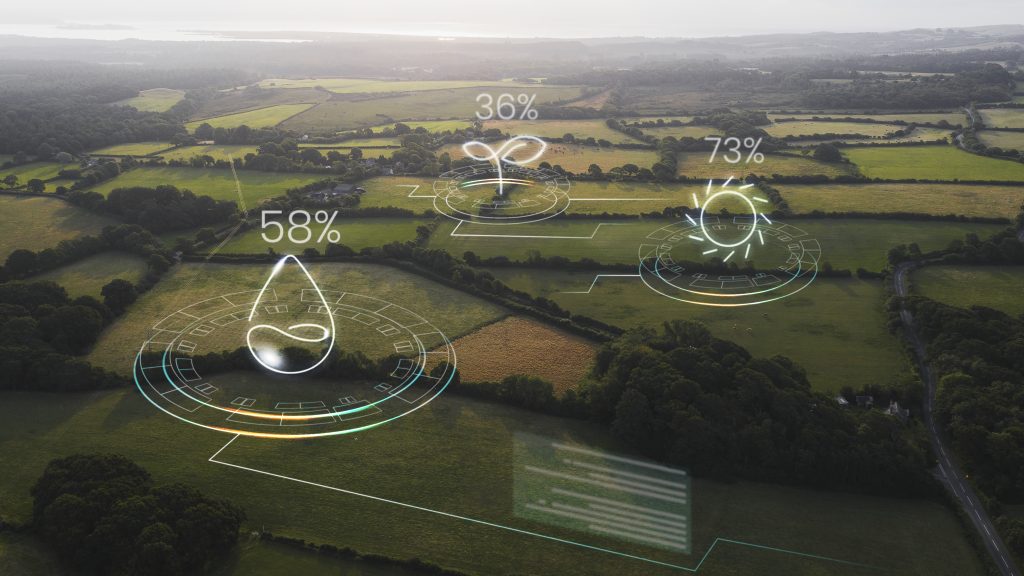
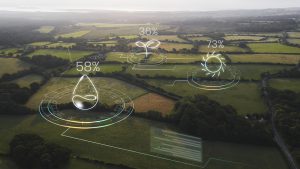
The Internet of Things (IoT) serves as a pivotal tool in both mitigating and adapting to climate change by enabling real-time data collection, resource optimization, and community preparedness. Through a network of interconnected sensors and devices, IoT facilitates immediate responses to environmental shifts, empowers sustainable resource management, and equips communities to better cope with climate-related challenges.
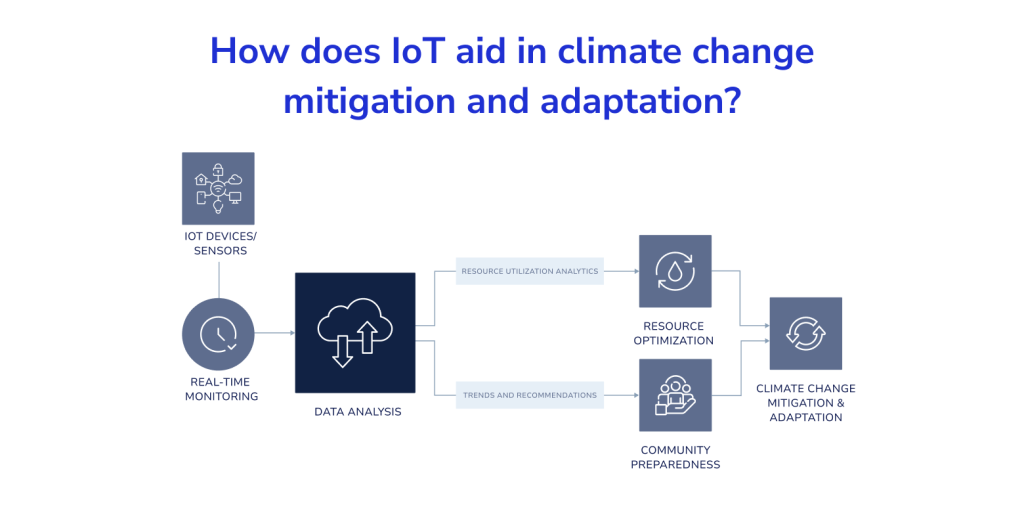
What is the role of the Internet of Things in climate change?
The Internet of Things technology plays a significant role in climate change, a viewpoint not just held by us but also supported by academic institutions, the United Nations, NGOs, and communities ranging from tech enthusiasts to environmental activists.
Academic institutions
Academic institutions have long been the cradle for cutting-edge research on the applications of the Internet of Things (IoT) for sustainability. Back in the early 2010s, numerous studies emerged exploring IoT’s role in tracking deforestation, monitoring pollution, and gathering climate data. These academic contributions have often been cited by both policymakers and industry experts as foundational to the application of IoT in combating climate change.
United Nations
The United Nations has been a critical player in promoting the use of technology for sustainable development. Investing in various programs, such as Smart Cities and the Sustainable Development Goals, the UN has actively encouraged the integration of IoT to monitor and reduce carbon emissions, improve resource management, and foster resilience against climate-related catastrophes. These initiatives often act as blueprints for nation-states and set the global agenda for tech-driven sustainability.
Non-governmental organizations
Non-governmental organizations (NGOs) have been pivotal in bridging the gap between technology and the community. Through public awareness campaigns, workshops, and grassroots initiatives, NGOs encourage individuals and local businesses to adopt IoT solutions for sustainable living. These efforts range from deploying IoT-enabled water-saving systems in drought-prone areas to setting up community-based renewable energy projects facilitated by IoT devices.
Business applications of IoT in advancing environmental goals
The integration of Internet of Things (IoT) technologies into business operations offers new pathways for advancing environmental sustainability. These applications serve 6 key goals.
Improve energy efficiency
- Smart energy management for the US market – we assist North American businesses monitor and optimize building energy consumption through our advanced sensors and analytics, reducing both power consumption and costs.
- Renewable energy grid integration – leveraging our expertise in real-time data and predictive algorithms, we enable seamless control and distribution of renewable energy sources like solar and wind for businesses.
- Automated HVAC systems – we offer businesses sensor-driven HVAC systems that adapt to occupancy and external conditions, ensuring that energy is not wasted.
Optimize resource management
- Resource management in agriculture – we assist businesses in making data-driven agricultural decisions by leveraging IoT technology.
- Precision agriculture – our sensors and machine learning algorithms are designed to help businesses tailor farming practices down to the exact needs for water or fertilizer, thus minimizing waste.
- Intelligent water irrigation systems – we offer businesses real-time data solutions to regulate water supply, aiming to use only the amount of water truly needed and thus conserving resources.
Manage waste and emissions
- Waste monitoring and management – our IoT sensors are developed to help businesses monitor waste levels in disposal containers and alert waste management services for timely pickup, mitigating overflow and litter.
- Real-time emission monitoring – we provide businesses with sensors that continuously monitor air quality, ensuring compliance with regulatory standards like the Clean Air Act.
- Fleet management for reduced emissions – we assist businesses with GPS and onboard diagnostics to optimize fleet routes and monitor vehicle health, significantly reducing emissions.
Data-driven environmental stewardship
- Carbon footprint analytics – we enable businesses to utilize data analytics to assess the carbon footprint of various activities, thereby identifying areas for sustainability improvement.
Streamline supply chain and industrial processes
- Sustainable supply chain tracking – we offer businesses tools to monitor the sustainability practices of their suppliers, thereby creating a more eco-efficient supply chain.
Monitor and protect environmental assets
- Water quality monitoring – we help businesses deploy sensors in bodies of water to collect data on pH levels, temperature, and pollutants.
- Wildlife and habitat monitoring – our IoT solutions for businesses include tracking collars and drones for wildlife monitoring, aiding in conservation efforts.
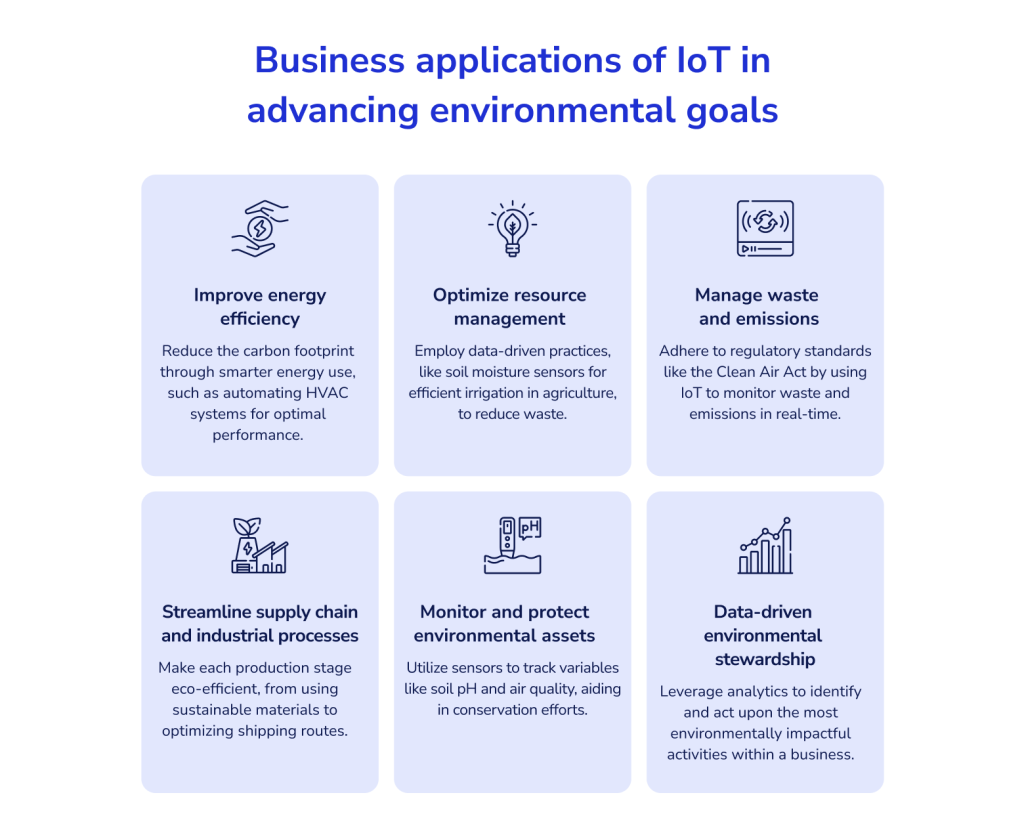
The role of carbon footprints and how IoT helps to reduce them
There is a direct link between carbon footprints and climate change—higher emissions exacerbate global warming and its associated impacts. As specialists in climate change software solutions, we help businesses monitor and reduce their carbon footprints through IoT integration and customized software. Let’s list some of them.
- Smart grids for US energy distribution – IoT devices can intelligently manage energy distribution, reducing waste of electricity and thus reducing the carbon footprint of power generation.
- Water conservation – smart irrigation systems can optimize water use, reducing the energy-intensive process of water extraction, treatment, and distribution.
- Intelligent transportation systems – IoT can optimize traffic flow through smart signaling, reducing the time cars spend idling, which in turn reduces emissions.
- Waste management systems – smart garbage bins can alert collection services when they’re full, optimizing routes and reducing the frequency and distance that garbage trucks need to travel, thus reducing their emissions.
- Systems for smart buildings – IoT-enabled HVAC and lighting systems can adjust automatically based on occupancy and need, reducing energy consumption and therefore emissions from electricity use.
- Precision agriculture monitoring software – by monitoring soil conditions, weather, and crop health, IoT devices can precisely apply water, fertilizer, or pesticides only where needed, reducing waste and emissions from farming operations.
- Real-time emission monitoring in factories – IoT sensors can actively measure emissions from factories, allowing for immediate adjustments to industrial processes to stay within regulatory guidelines and reduce pollutants.
Why choose SumatoSoft for your IoT project?
- Expertise in IoT – we have provided IoT development services for 12 years and are ready to apply our knowledge and expertise to develop your climate change project.
- Regulatory compliance – our solutions are designed with strict adherence to globally recognized standards like ISO 14001 for environmental management systems, ensuring your projects not only meet but exceed regulatory expectations.
- Honesty and transparency – we communicate weekly, run demos of the work done, provide several contact points, send timesheet reports every month even if you don’t request them, explain potential risks and help to handle them, advise on the decisions, and help to avoid unnecessary costs.
- Our Client’s satisfaction rate is 98%, thanks to our firm commitment to deadlines and their needs.
- Every solution SumatoSoft builds comes with excellent security and scalability for future changes in terms of new features, fleet expansion, new users, and increased workload.
Let’s start
If you have any questions, email us info@sumatosoft.com

